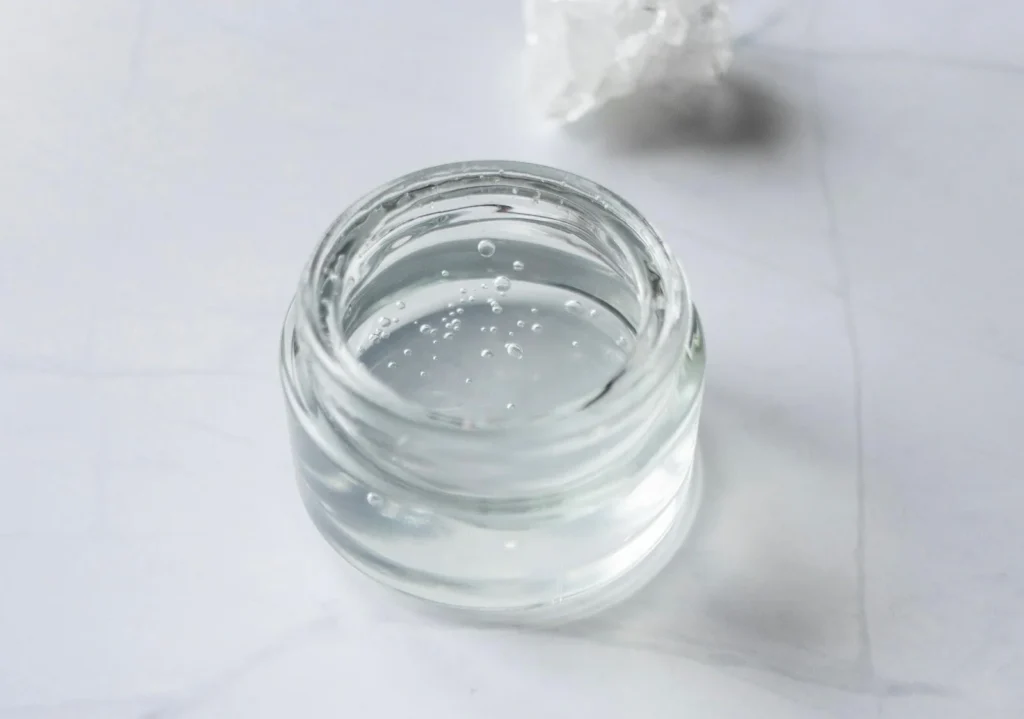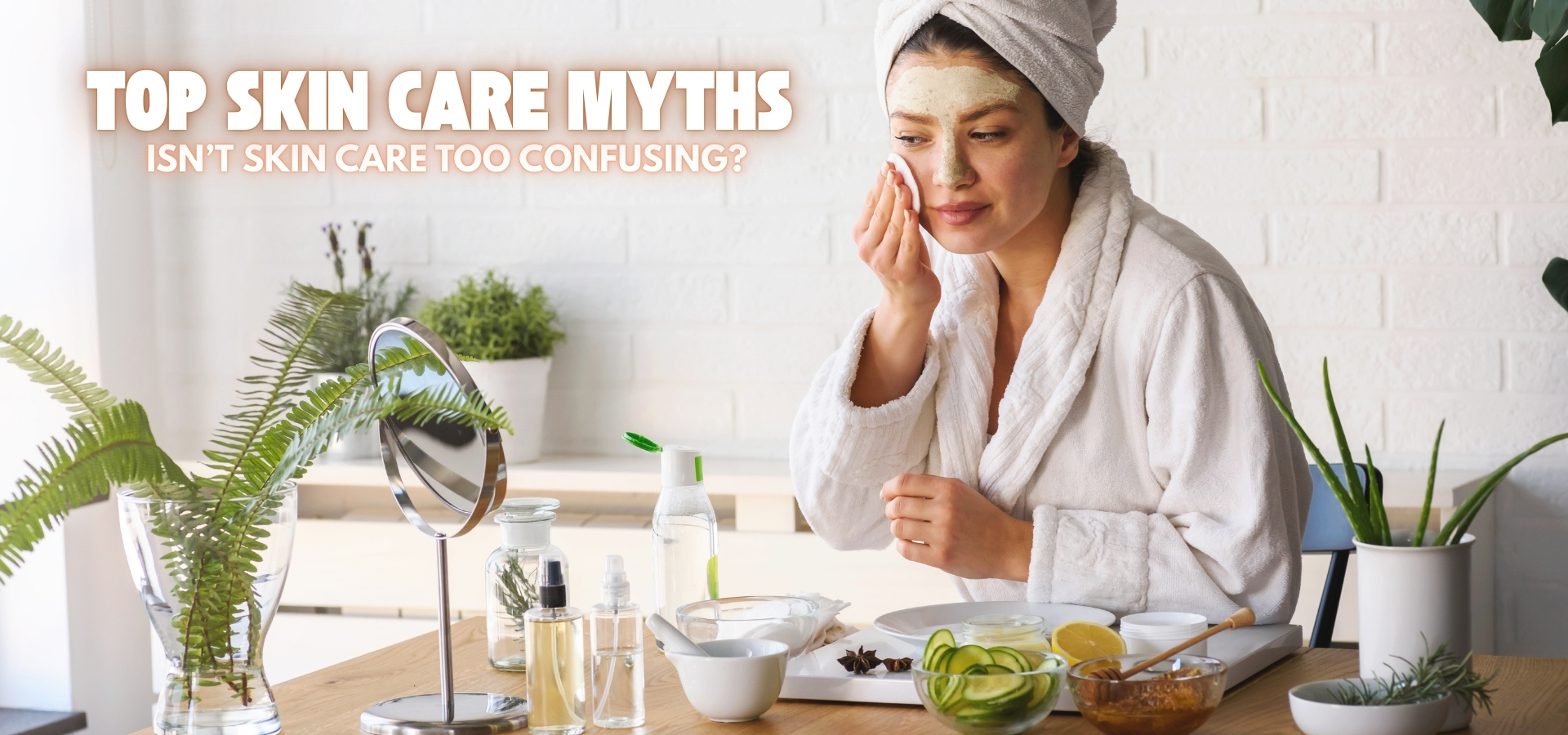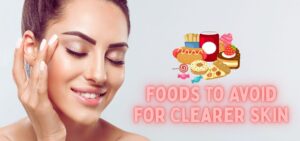Yes, even I think it is. Especially with so many beauty influencers, marketing claims, and home remedies floating around, it’s easy to get confused.
When it comes to skincare, misinformation spreads faster than actual scientific facts. Unfortunately, some of these myths can lead to unnecessary or ineffective routines or even damage your skin.
In this blog, we’ll break down five of the most common skincare myths and reveal the truth behind them.
1. Natural Skincare Is Always Better
If it’s natural, it must be good for your skin, Right!
Truth: Not all natural ingredients are safe, and not all synthetic ingredients are bad.
Natural products often contain a complex mixture of bioactive compounds — many of which are beneficial (e.g., antioxidants, anti-inflammatories).But this complexity also increases the risk of:
Allergies (e.g., plant proteins, essential oils)
Photosensitivity (e.g., citrus oils, St. John’s Wort)
Skin irritation (e.g., raw turmeric, neem, some clays)
In earlier times, apothecaries and traditional chemists would perform methods like:
Distillation – to isolate essential oils or remove irritants
Fermentation – to enhance bioavailability and reduce harshness
Decoction or infusion – controlled extraction of desired compounds
Titration and filtration – to purify and standardize

2. Oily Skin Doesn’t Need Moisturizer
Myth: Moisturizing makes oily skin worse.
Truth: Skipping moisturizer can backfire at times. When oily skin lacks hydration (as in, when we are in air-conditioning the whole day), it often compensates by producing even more oil, leading to an even shinier complexion and potential breakouts.
Moisturizers help maintain a balanced skin barrier, preventing dehydration and irritation. The key is to choose the right type of moisturizer:
Look for lightweight, oil-free, and non-comedogenic formulas that won’t clog pores.
Some moisturisers meant for oily skin have contents that reduce sebum secretion .
Gel-based or water-based moisturizers (with ingredients like hyaluronic acid, glycerin, or aloe vera) work well for oily skin.

You can avoid thick, heavy creams that can feel greasy and contribute to breakouts.
3. The More You Wash Your Face, The Better Your Skin Will Be.
Myth: Many people think that washing their face multiple times a day will help remove dirt, oil, and bacteria, keeping their skin clear and healthy
Truth: Overwashing can strip the skin of its natural oils, disrupting the skin barrier and causing irritation.
How Often Should You Wash Your Face?
Twice a day (morning and night, maximum thrice a day) is the ideal routine for most skin types.
Choosing the Right Cleanser
For dry or sensitive skin: Use a hydrating, non-foaming cleanser with ingredients like ceramides or hyaluronic acid.
For oily or acne-prone skin: A gentle foaming or gel cleanser with actives like salicylic acid can help control oil.
Takeaway: Gentle cleansing is better than over-cleansing.
4. You Only Need Sunscreen on Sunny Days
Myth: No sun = no sunscreen needed.
- Up to 80% of UV rays can penetrate clouds — so even on a cloudy day, your skin is exposed.
- Visible light (especially HEV blue light) from screens, and infrared (IR) rays from heat sources can also contribute to pigmentation, collagen breakdown, and aging.
- Glass windows don’t fully block UVA — which is the deeper-penetrating, aging ray.
Takeaway: Wear SPF 30+ daily—indoors or outdoors, rain or shine. If you are looking for a cream to use everyday morning, it should be a sunscreen that suits your skin – meaning you feel comfortable wearing liberally, as recommended.
5. Skincare Products Alone Give You Perfect Skin
Myth: Expensive serums and creams are all you need for glowing skin.
The Truth:
While a good skincare routine is important, your diet, sleep, and lifestyle play an equally—if not more—important role in skin health.
Key Lifestyle Factors for Healthy Skin:
1. It all starts with Nutrition
A diet rich in antioxidants, vitamins, and healthy fats helps maintain youthful, glowing skin.Processed foods, excess sugar, smoking and alcohol can contribute to acne and premature aging.
2. Sleep is vital
Lack of sleep increases cortisol levels, which can lead to breakouts, dull skin, and premature wrinkles.
Your skin and other organs, repairs itself at night, so aim for 7–9 hours of quality sleep daily.
3. Hydration
Drinking enough water helps maintain skin elasticity and flush out toxins.
Combine hydration with moisturizers to prevent water loss from the skin.
4. Stress Management
Chronic stress triggers inflammation and worsens conditions like acne, eczema, rosacea, psoriasis etc,.
Healthy skin isn’t just about products—it’s about a holistic lifestyle that includes a balanced diet, sleep, hydration, and stress management.
Truth: Skincare is just one piece of the puzzle. Your diet, sleep, hydration, and stress levels matter too! Take care !




